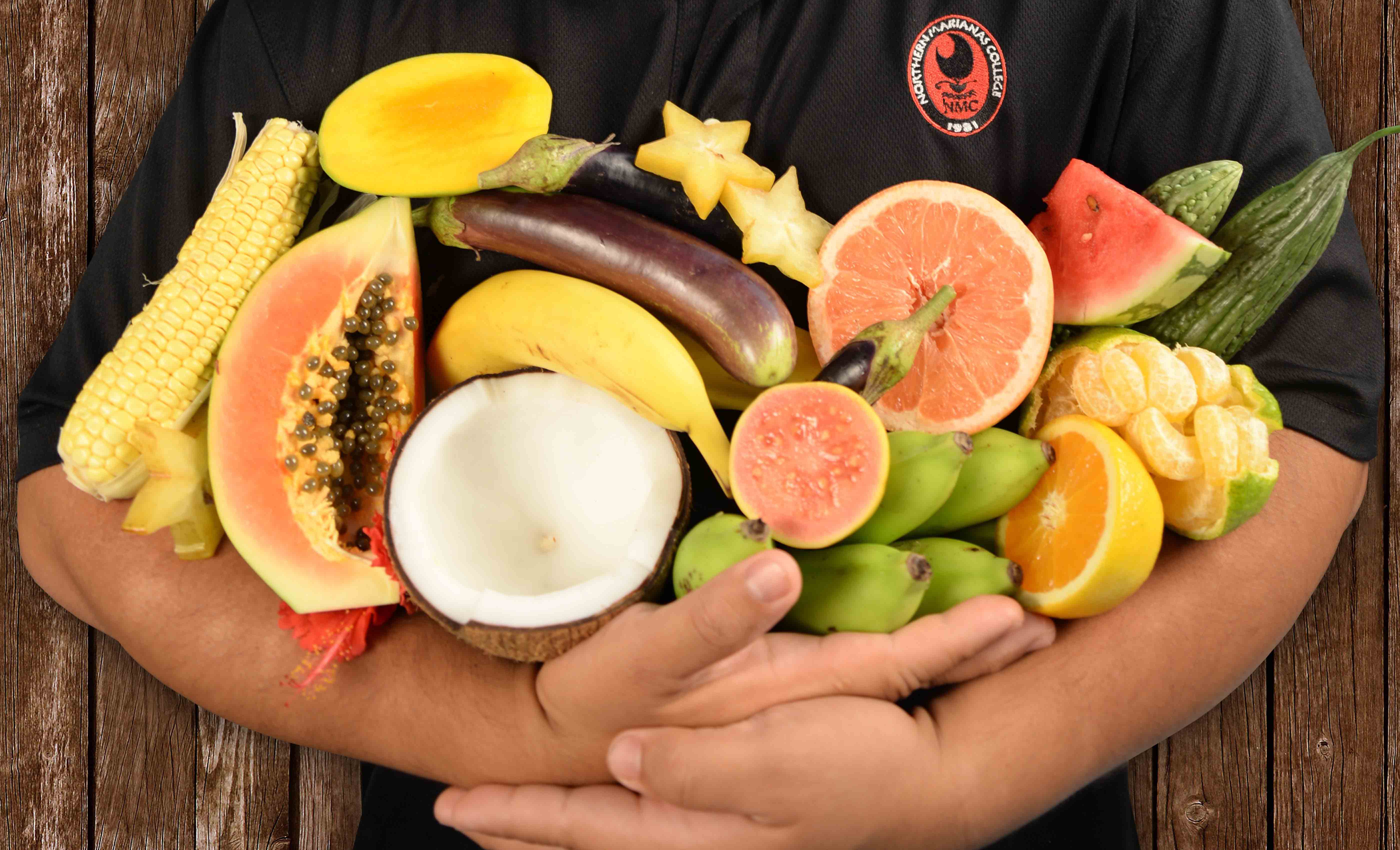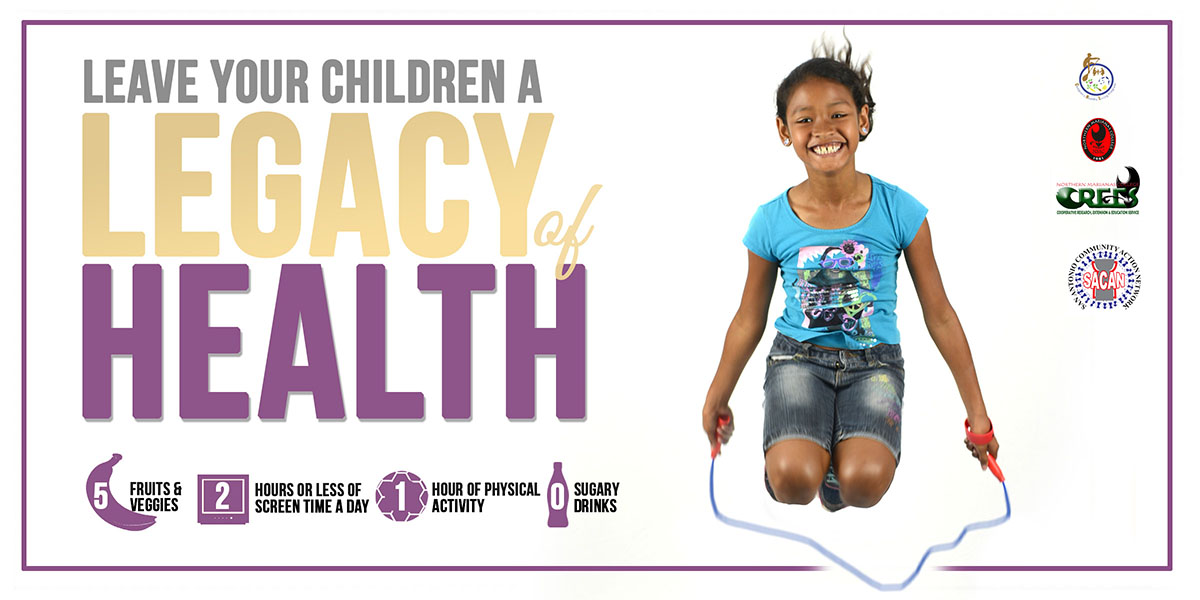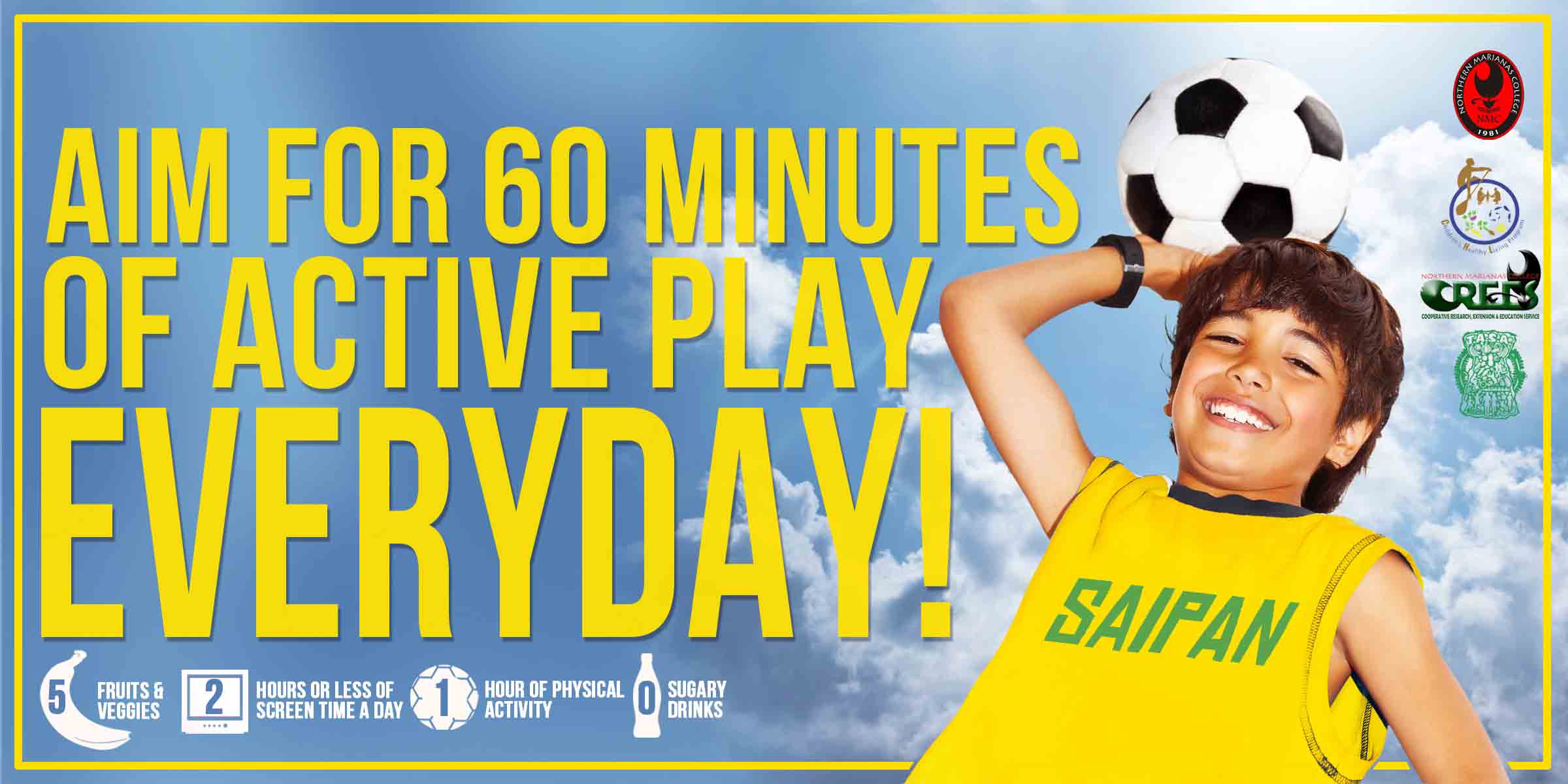The Nutrition and Health Programs aim to provide unbiased, researched based outreach and education to the community and to promote a better, healthier CNMI.
Nutrition & Health Programs

The Expanded Food and Nutrition Education Program (EFNEP) helps families across Saipan, TInian, and Rota who have limited resources achieve lifelong health and fitness. EFNEP helps families with young children using a evidence-based, 9 lesson curriculum that teaches about stretching the dollar while eating healthy.

The Children’s Healthy Living Program for Remote Underserved Minority Populations in the Pacific Region (CHL) is a partnership among remote Pacific states and other jurisdictions of the US: Alaska, American Samoa, Commonwealth of the Northern Mariana Islands, Guam, Federated States of Micronesia, Hawaii, Republic of Palau, and the Republic of the Marshall Islands. All jurisdictions have US Land Grant Colleges, which have united in the Pacific Land Grant Alliance (PLGA). The goal of CHL is to build social/cultural, physical/built, and political/economic environments that will promote active play and intake of healthy food to prevent young child obesity in the Pacific Region. To do this, CHL engages the community, and focuses on capacity building and sustainable environmental change. CHL strives to serve as a model for other regions with remote underserved Native populations at risk for obesity.

COPP leverages relationships with key stakeholders to affect positive change in nutrition and health at the individual, group, and population levels. In short, COPP strives to make "the healthy choice, the easy or default choice" by focusing on access, availability, affordability, and acceptability in the food and built environments. COPP also focuses on improving policies that encourage healthier behavior choices and building data systems to enhance our ability to understand of childhood underweight, overweight, and obesity.